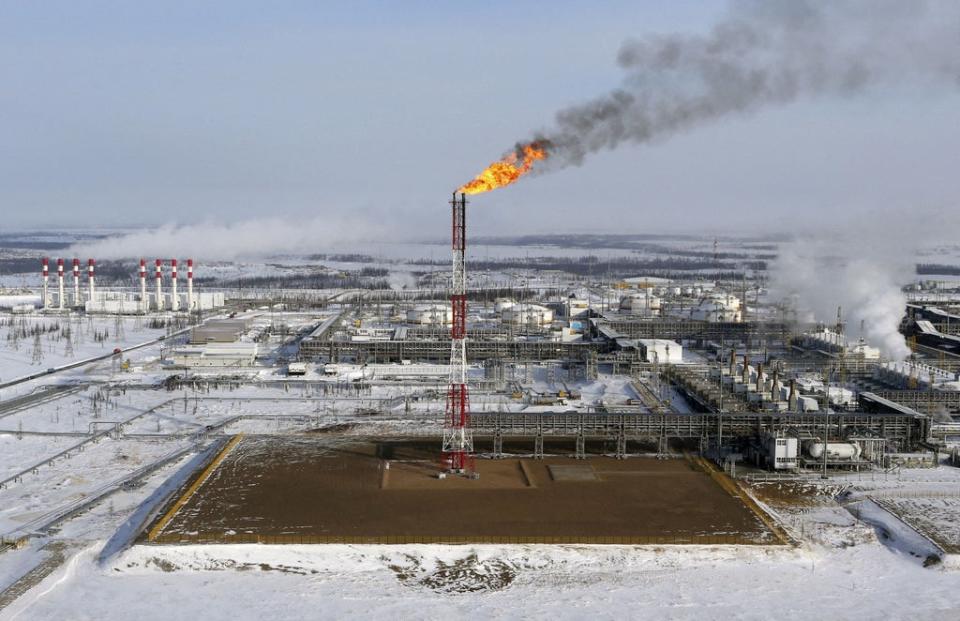Oil prices surge as EU proposes complete ban on Russian crude and petrol imports

Oil prices surged higher on Wednesday morning, putting renewed pressure on living costs, after the European Commission announced plans for a complete ban on imports of Russian crude.
EC president Ursula von der Leyen proposed a phased oil embargo that would halt all imports of Russian oil into the EU within six months and refined products by the end of the year.
If it goes ahead, the plan would mark a major escalation in European efforts to cut funding to Vladimir Putin's war machine.
Brent crude, the key international oil price benchmark, rose 3.5 per cent to $108.50, as traders priced in the prospect of further disruption to oil supplies which have been upended by Russia’s invasion of Ukraine. A closely watched US becnhmark, West Texas Intermediate, jumped 3.6 per cent to $106.
The moves threaten to push up fuel prices for motorists and businesses across the continent who are already facing record costs to fill up their tanks.
The UK has previously announced its own phased ban on Russian crude imports but would be impacted by the EU’s embargo because oil prices are set by global markets.
If prices remain elevated, it would eventually feed through to the cost of a whole range of goods and put further upward pressure in inflation. A litre of petrol was £1.62 and diesel £1.77 on Monday, according to the latest government figures.
However, there are still hurdles to clear before the EU plan can go ahead. Ms von der Leyen conceded that it will be difficult for a ban to gain unanimous support, with some nations, including Hungary and Slovakia, indicating they will not agree to such a move.
It is unclear whether these countries will be given an exemption by the EU.
“We are addressing our dependency on Russian oil. And let’s be clear, it will not be easy because some member states are strongly dependent on Russian oil, but we simply have to do it,” the Commission’s president said.
Even before the latest news, inflation in the UK was expected to surge to a 40-year high this year.
Consumer Prices Index inflation is expected to hit 8 per cent, causing the steepest decline in living standards since the 1950s as wage increases fail to keep pace.
On Thursday, the Bank of England is set to deliver its latest inflation report and decision on interest rates. It is widely expected to raise rates from 0.7 per cent to 1 per cent, in a bid to tame inflation.

 Yahoo Finance
Yahoo Finance 